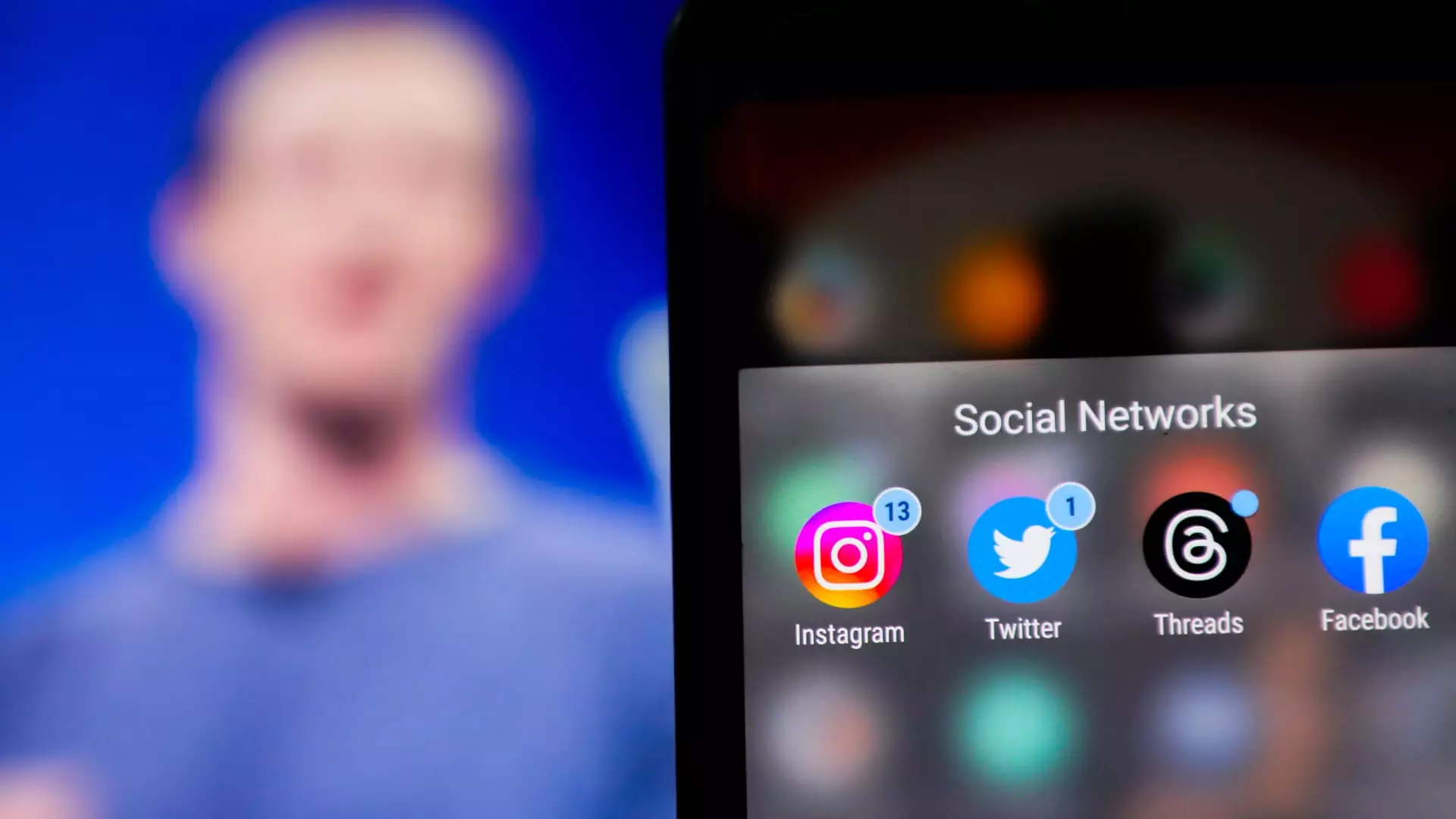The web of deceit woven by tech giants becomes increasingly tangled when insiders unveil their concerns about government scrutiny. Recently, during a pivotal antitrust trial against Meta, Mark Zuckerberg’s candid comments have resurfaced, shedding light on his early awareness of Meta’s precarious position. Back in May 2018, Zuckerberg mused over the potential necessity of spinning out Instagram and WhatsApp, not due to market strategy but rather as a desperate maneuver against mounting antitrust pressures. This reveal is alarming; the head of one of the most influential companies in history appeared to consider dismantling his empire not for innovation but rather for survival against a tide of regulations.
Zuckerberg’s reflections on the possible disintegration of Instagram stem from a genuine fear of the threats posed by government regulators. He implied that the tech behemoth might be forced into a structural change in a dystopian future where breaking up companies like Meta becomes a norm. The implications of these statements resonate deeply: they suggest that even the most fortified players in the tech landscape are vulnerable to legislative winds that could shift them from titans to mere shadows of their former selves.
The Path of Acquisition: Innovation or Monopoly?
Zuckerberg’s strategy in acquiring Instagram and WhatsApp raises critical questions about the role of mergers in fostering innovation versus building monopolistic holds over markets. Zuckerberg’s chilling comment regarding Instagram’s potential size if it remained an independent entity, comparing it to Twitter and Snapchat, suggests a sinister awareness of the competitive ecosystem. If Facebook embodies the antithesis of creativity and community, isn’t it revealing that Zuckerberg fears competition? The narrative that he constructs about acquiring these platforms for the sake of synergy instead appears increasingly self-serving.
His reflection implies an ecosystem where innovation is outsourced through acquisition rather than cultivated internally. The FTC alleges that such acquisitions grant Meta unfettered control over social networking, diminishing healthy competition. Each acquisition isn’t merely a business decision; it’s a strategic move to consolidate power. This instinct to undermine competition raises a fundamental question for society: Is the price of convenience more important than maintaining a landscape rich in diverse voices and experiences?
The Power Play of Tech Titans
The pushback from Meta against the FTC’s allegations is as instructive as it is troubling. By minimizing the impending threat from innovative challengers like TikTok and Apple’s iMessage, Zuckerberg encourages a narrative that paints Meta not as a monopolistic giant, but as a beleaguered participant trying to keep pace with a rapidly evolving marketplace. However, one must scrutinize this narrative. Accepting it yields a dangerous complacency; it prompts us to overlook the real concern at hand—when does innovation morph into exploitation?
Zuckerberg’s battle cries for competition often come across as an ironic testament to his fear of losing control. As the antitrust trial unfolds, it showcases a key conflict of interest—one that pits consumer interest against corporate ambition. Should we, as a society, continue to allow tech titans to maneuver through regulatory loopholes and manipulate the market while claiming the mantle of progress? The time is ripe for a philosophical reckoning regarding the impact of such monopolistic behaviors on our democracies and digital landscapes.

Leave a Reply